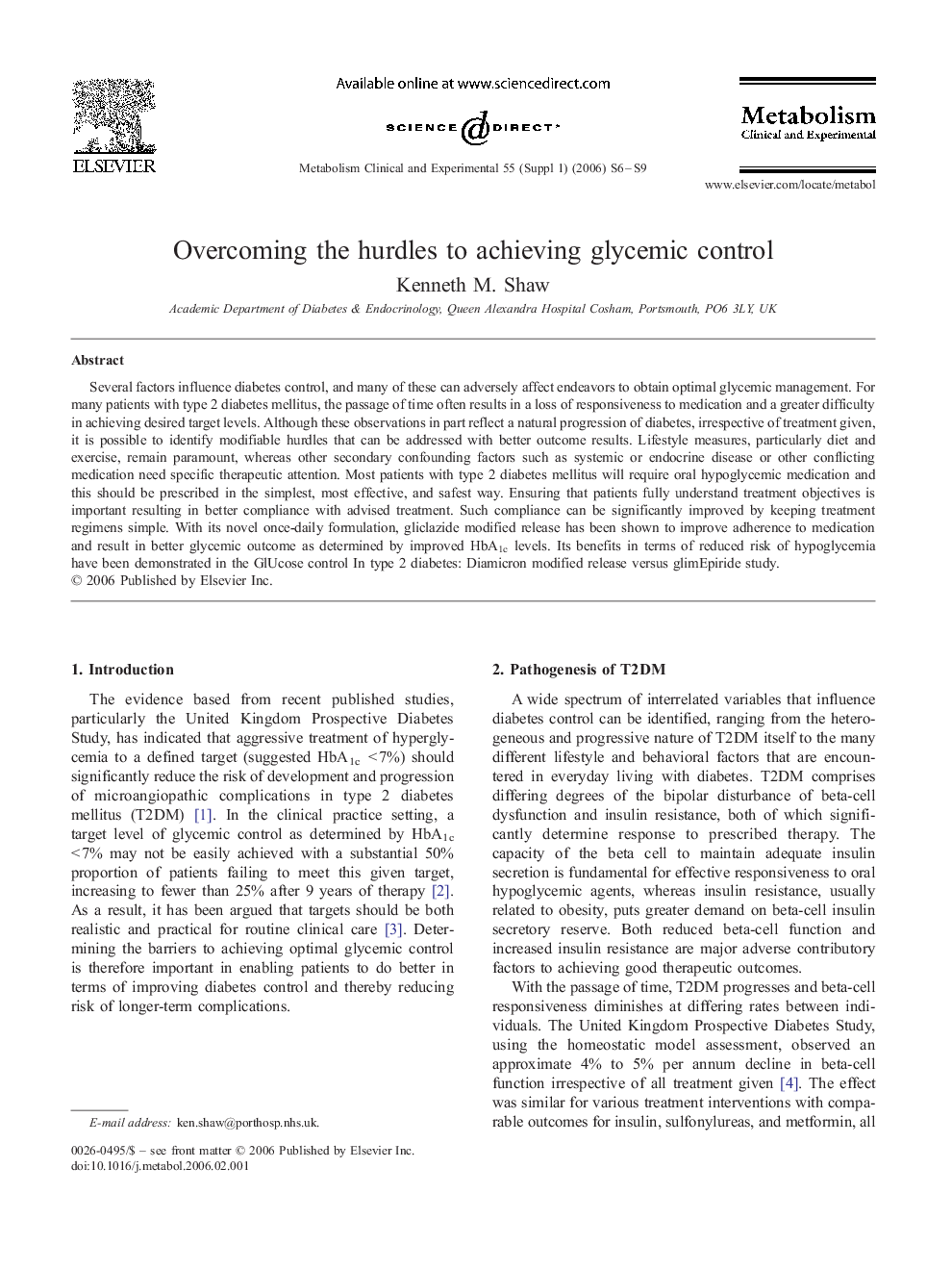| Article ID | Journal | Published Year | Pages | File Type |
|---|---|---|---|---|
| 2807375 | Metabolism | 2006 | 4 Pages |
Several factors influence diabetes control, and many of these can adversely affect endeavors to obtain optimal glycemic management. For many patients with type 2 diabetes mellitus, the passage of time often results in a loss of responsiveness to medication and a greater difficulty in achieving desired target levels. Although these observations in part reflect a natural progression of diabetes, irrespective of treatment given, it is possible to identify modifiable hurdles that can be addressed with better outcome results. Lifestyle measures, particularly diet and exercise, remain paramount, whereas other secondary confounding factors such as systemic or endocrine disease or other conflicting medication need specific therapeutic attention. Most patients with type 2 diabetes mellitus will require oral hypoglycemic medication and this should be prescribed in the simplest, most effective, and safest way. Ensuring that patients fully understand treatment objectives is important resulting in better compliance with advised treatment. Such compliance can be significantly improved by keeping treatment regimens simple. With its novel once-daily formulation, gliclazide modified release has been shown to improve adherence to medication and result in better glycemic outcome as determined by improved HbA1c levels. Its benefits in terms of reduced risk of hypoglycemia have been demonstrated in the GlUcose control In type 2 diabetes: Diamicron modified release versus glimEpiride study.
